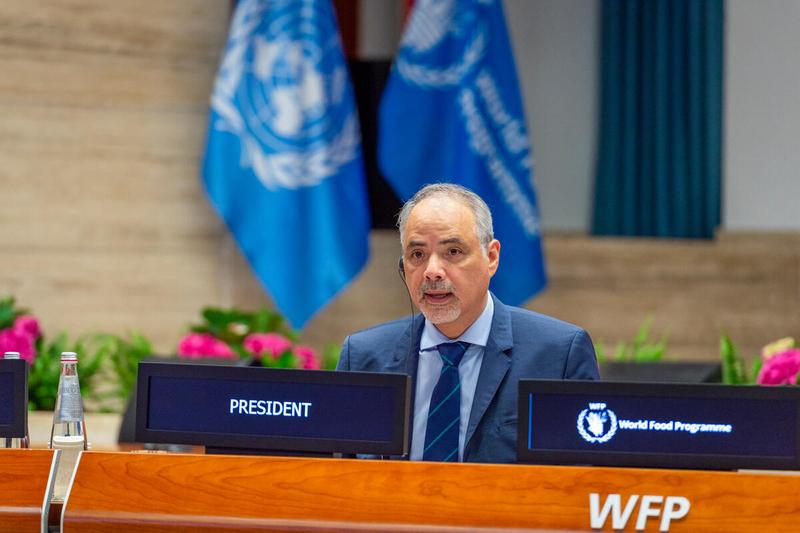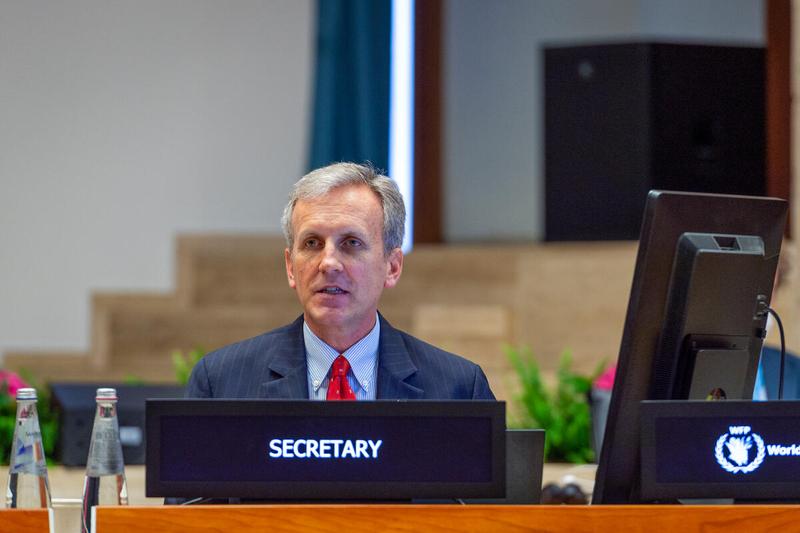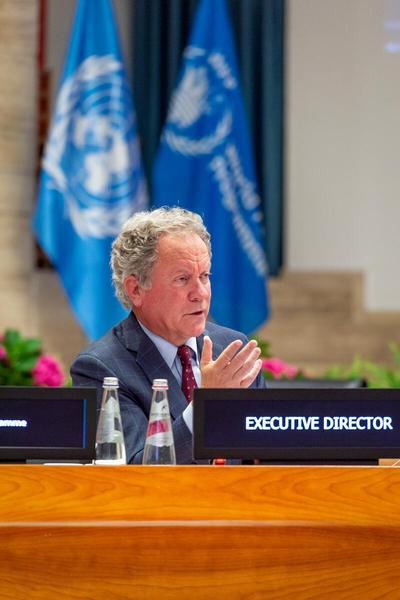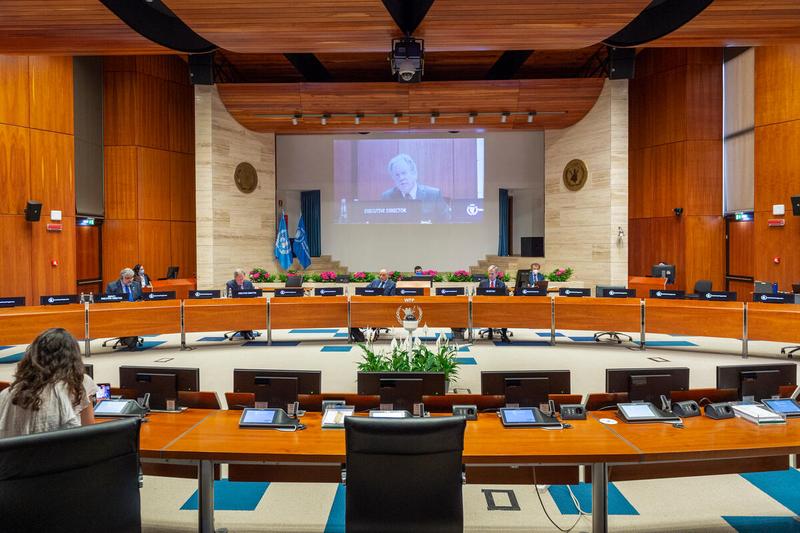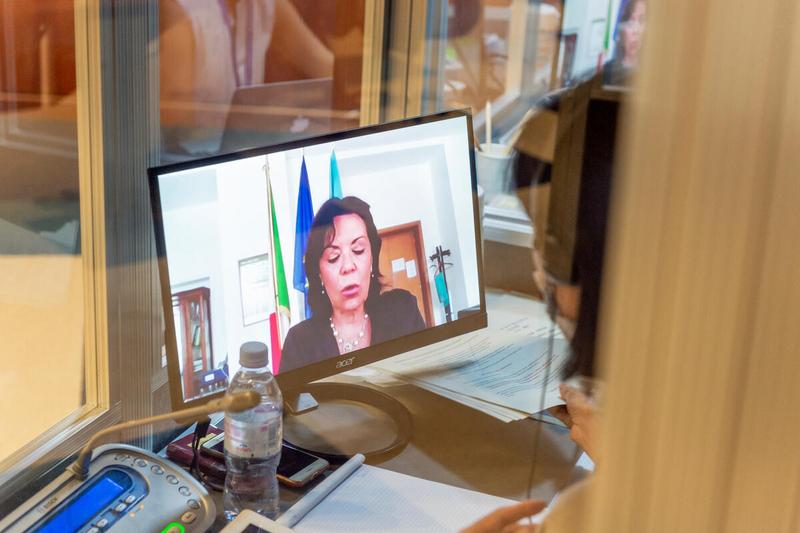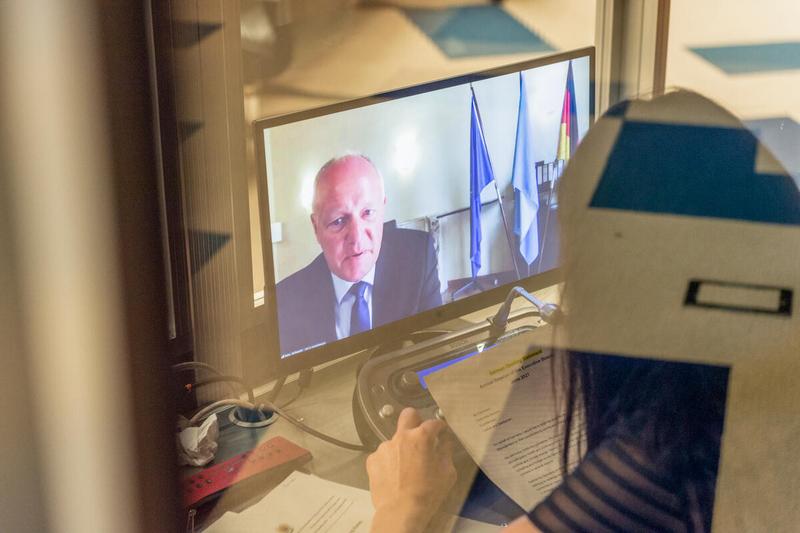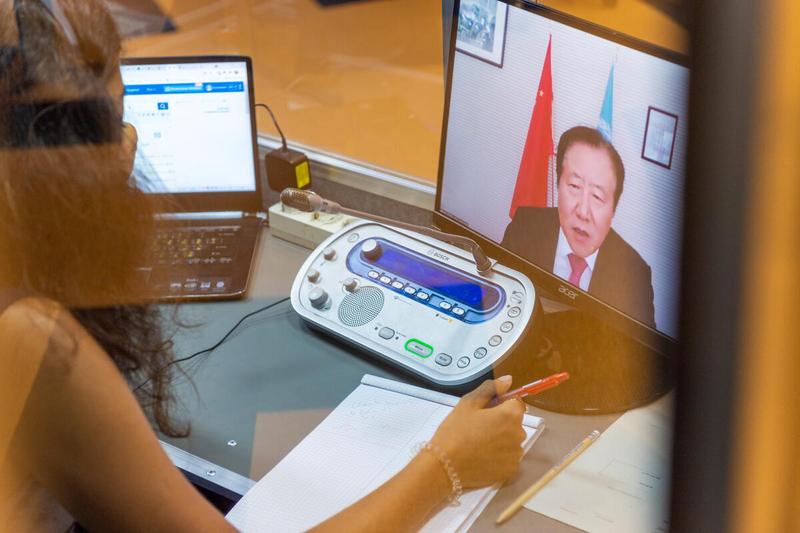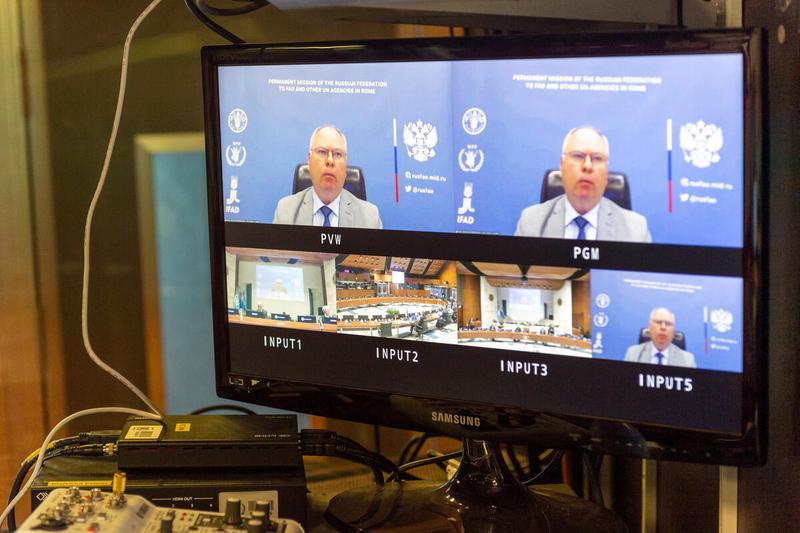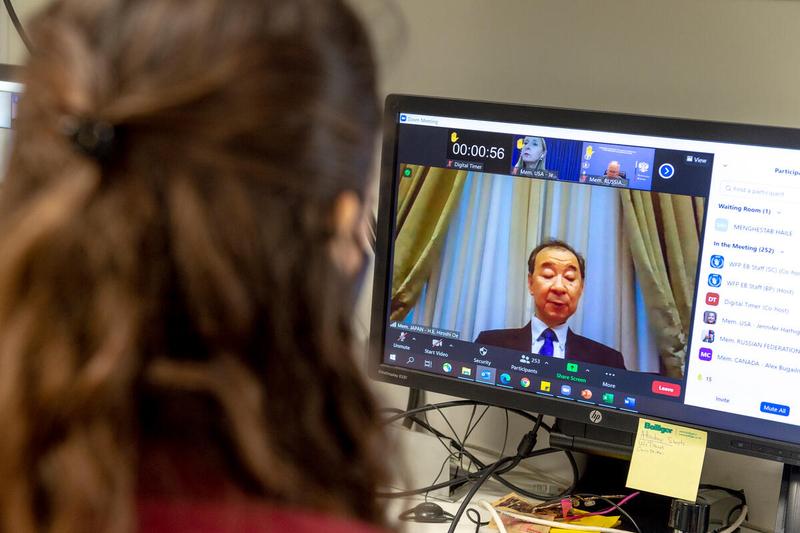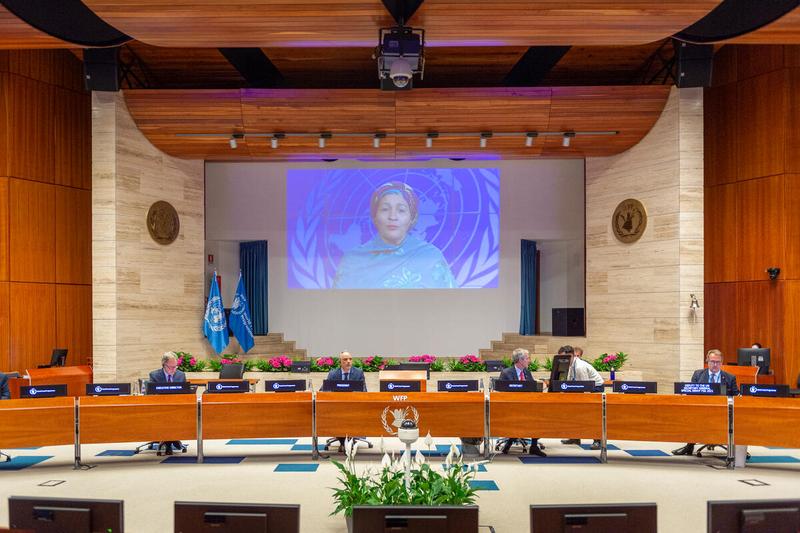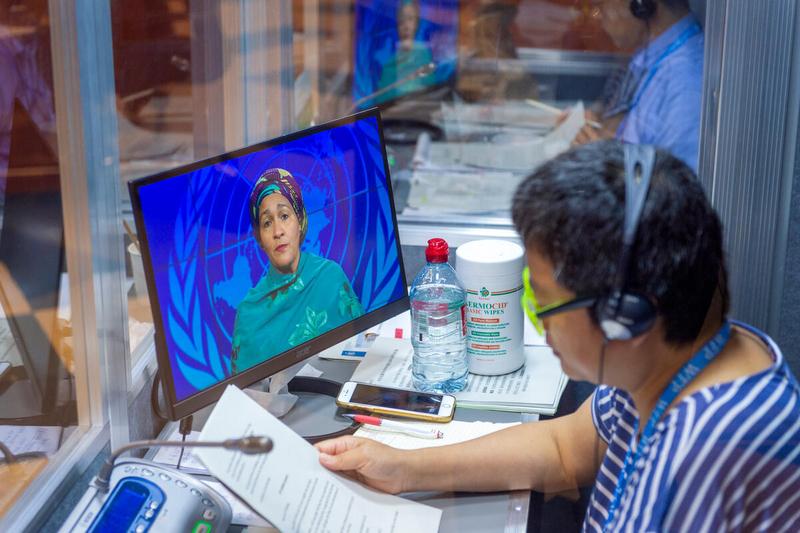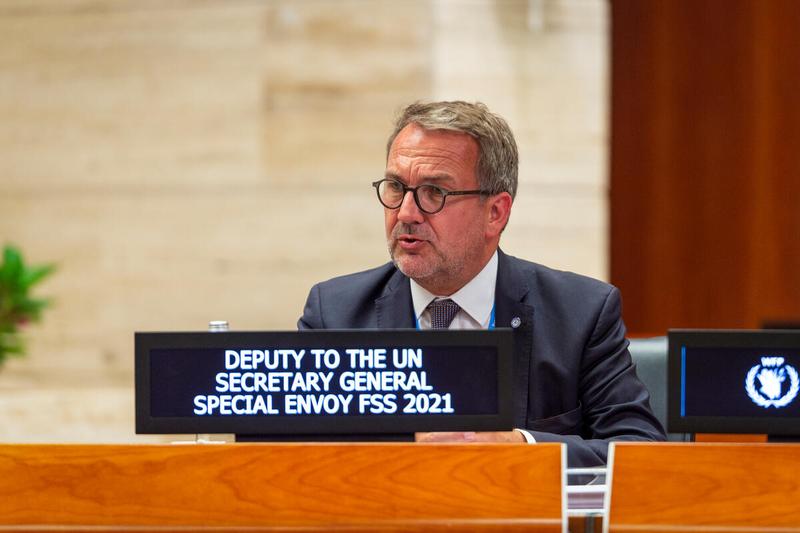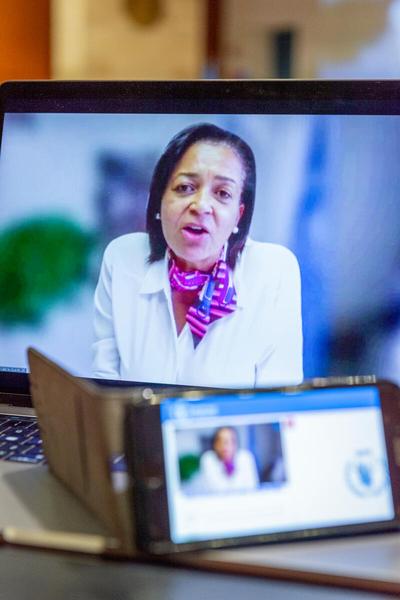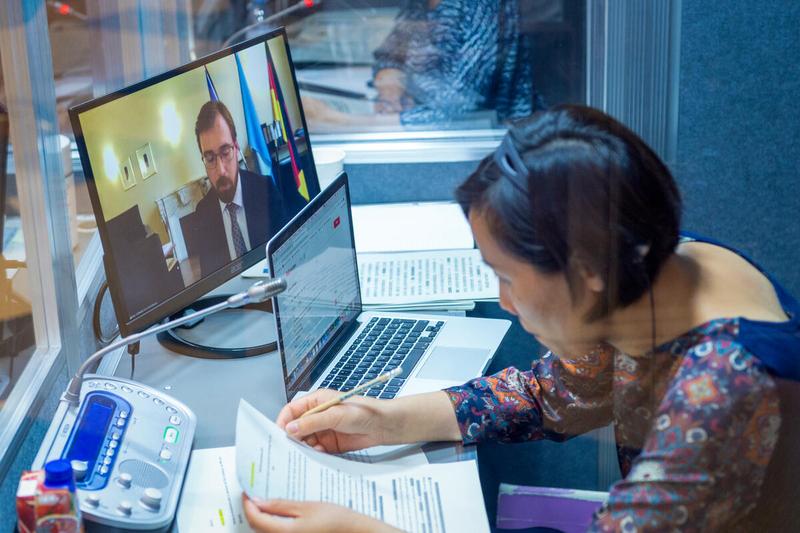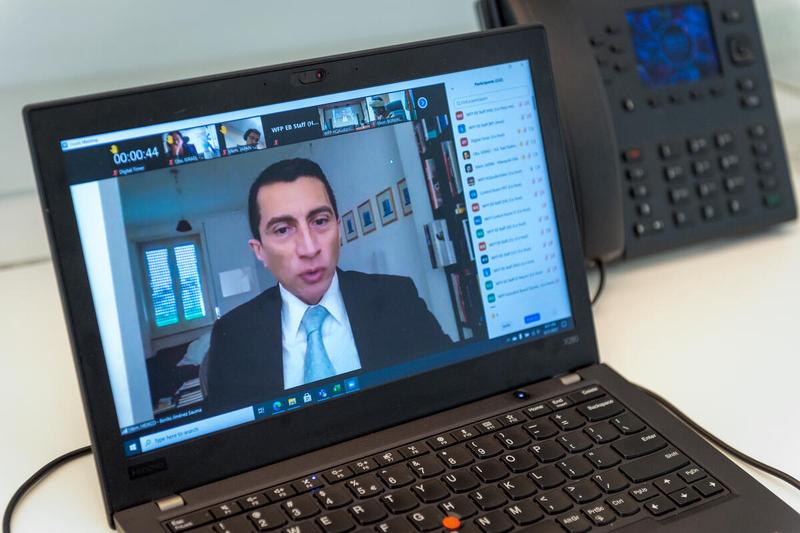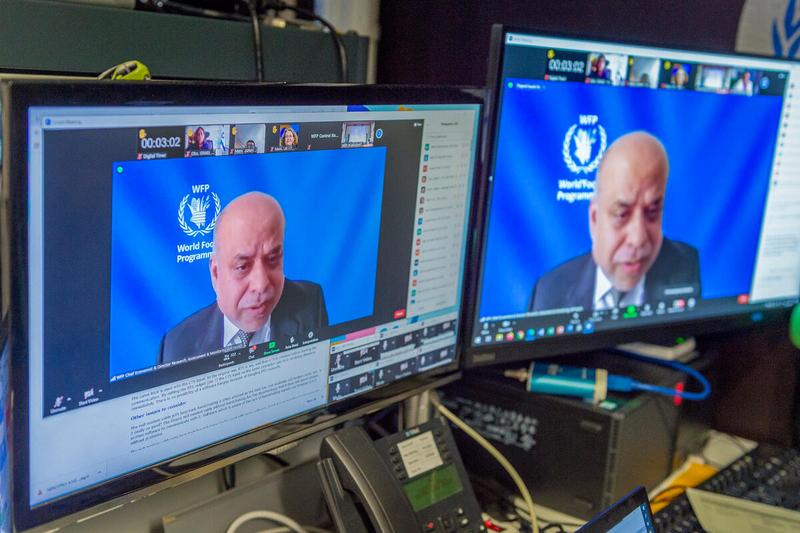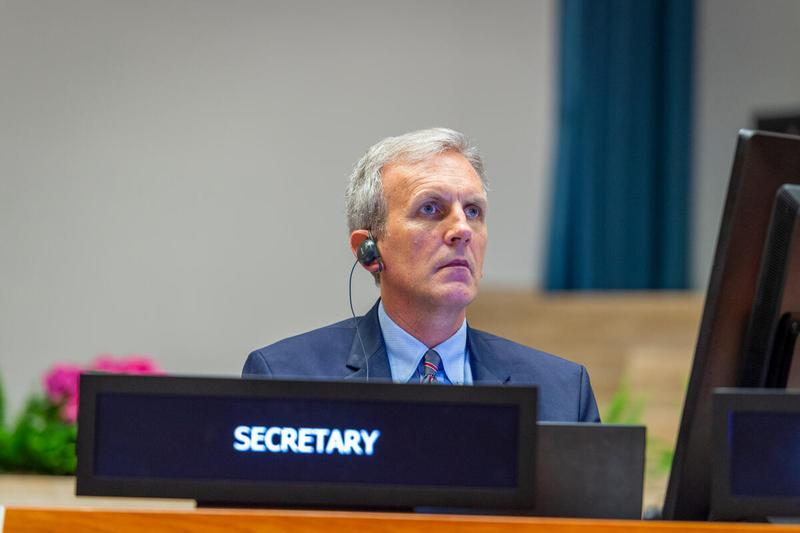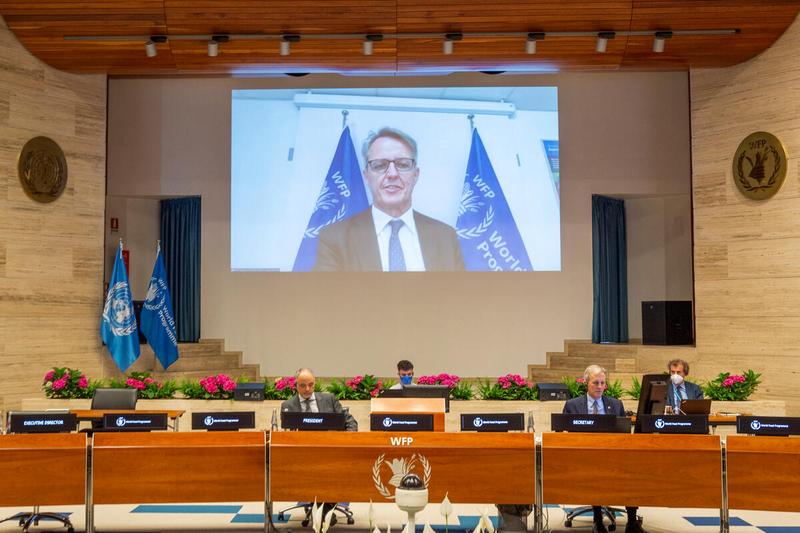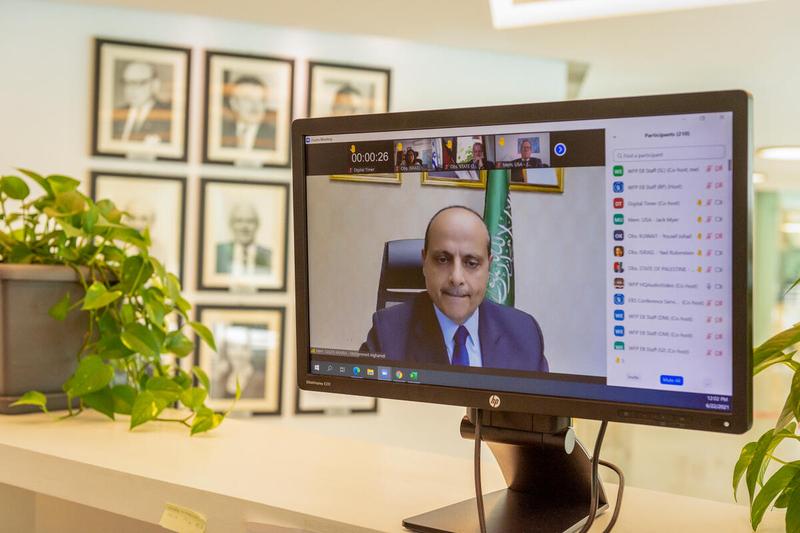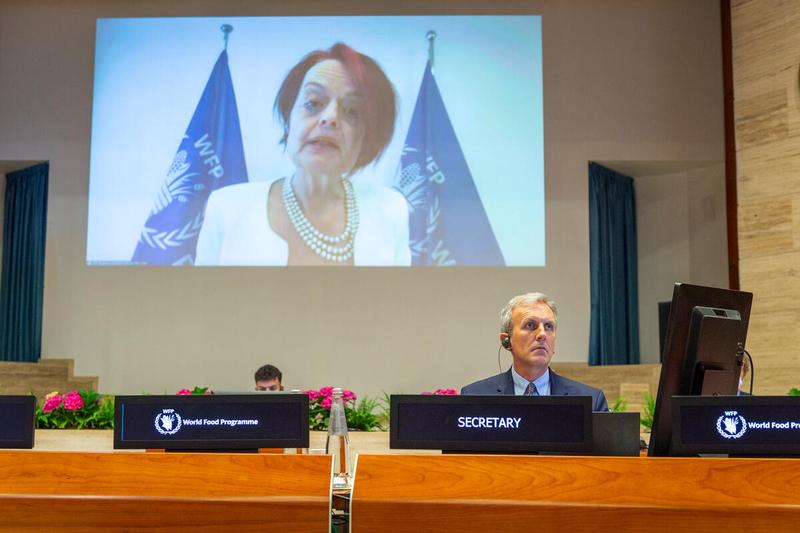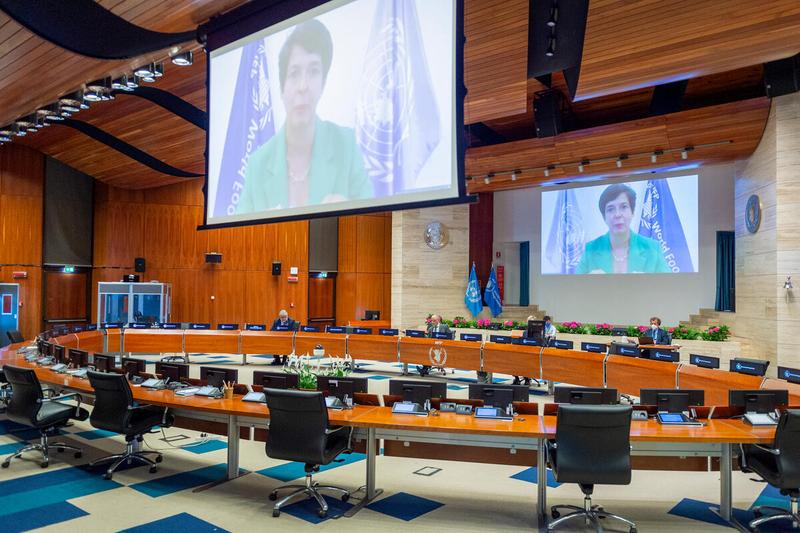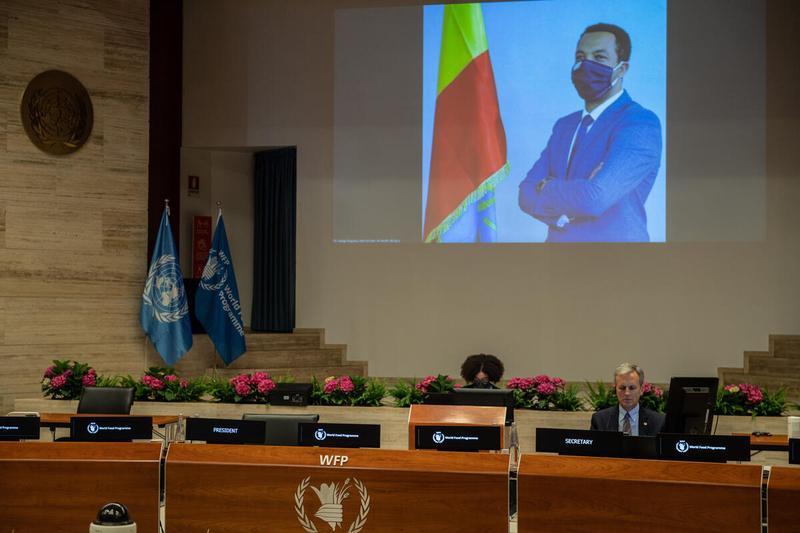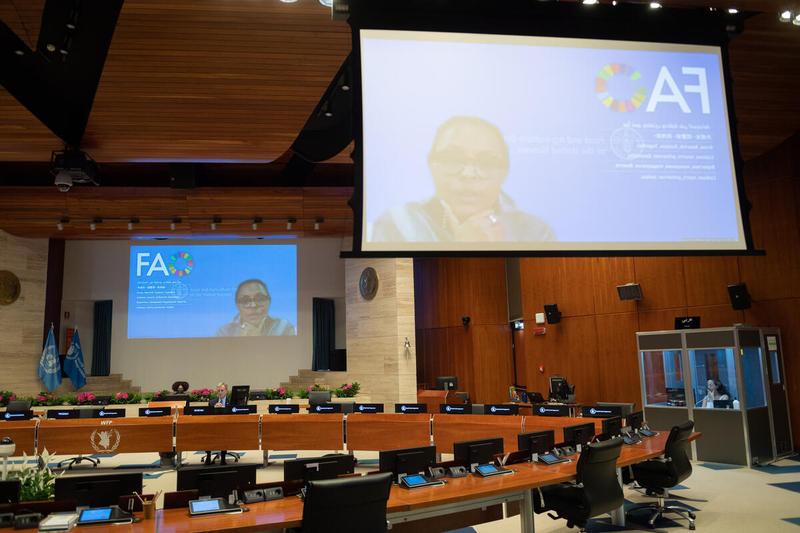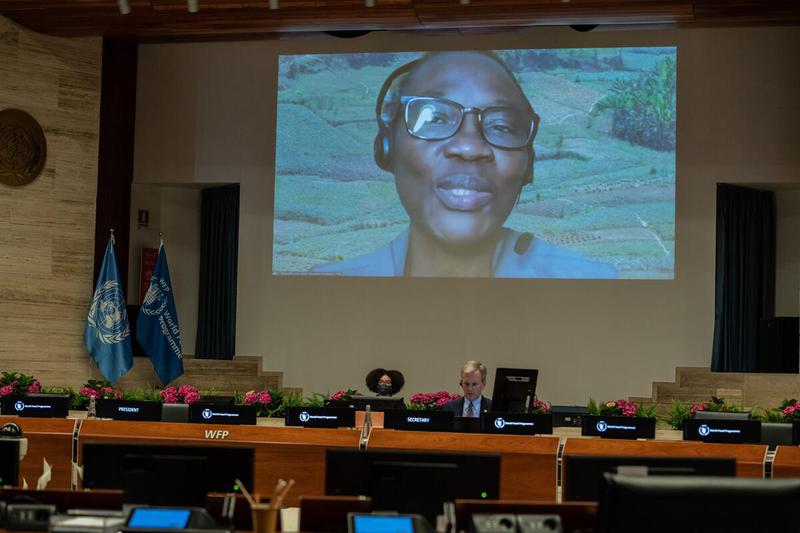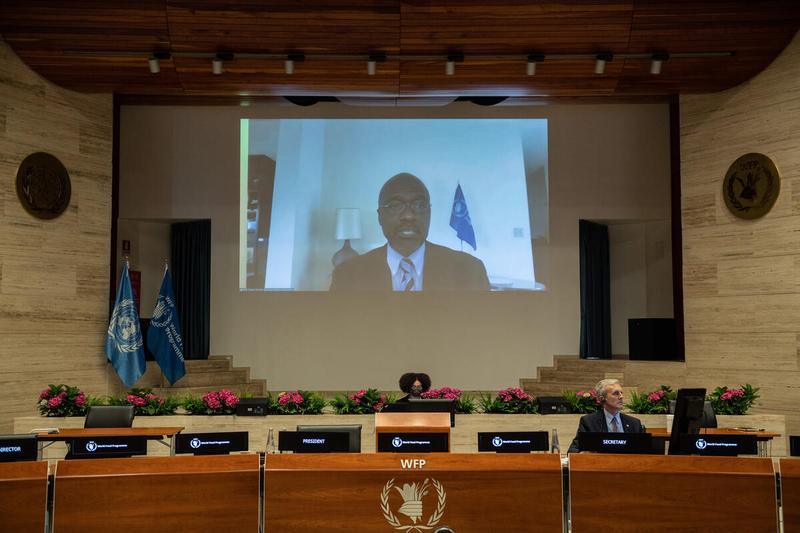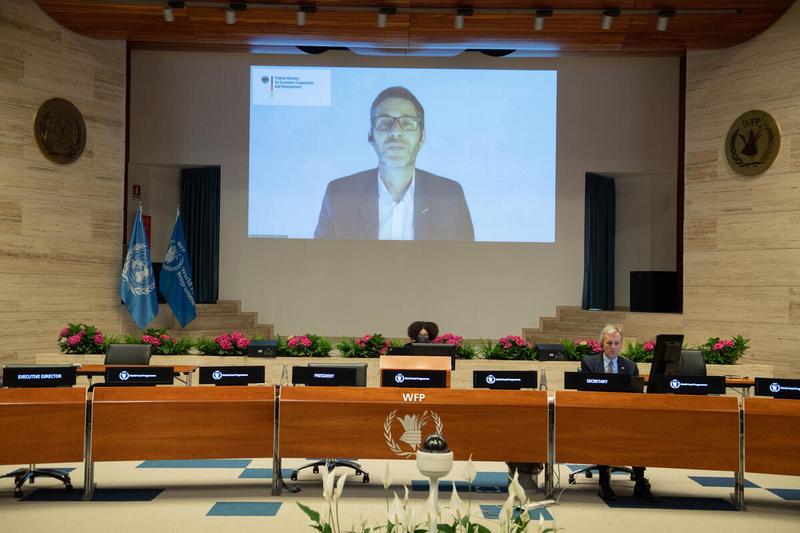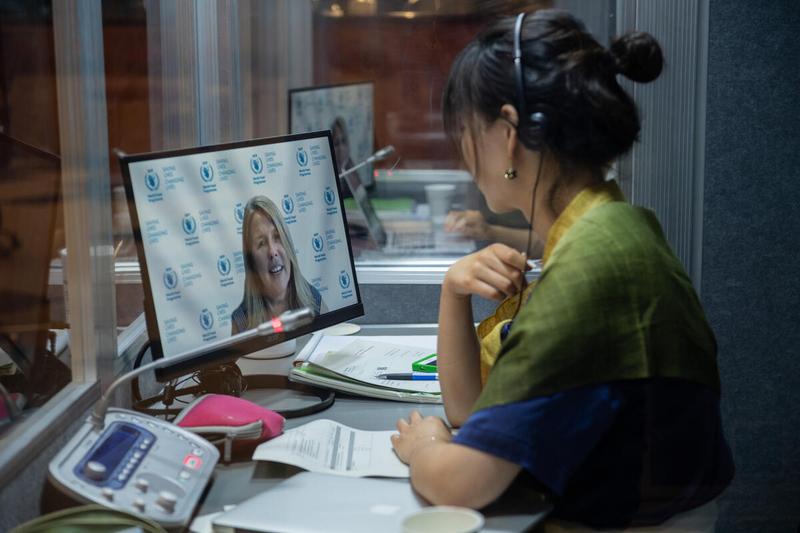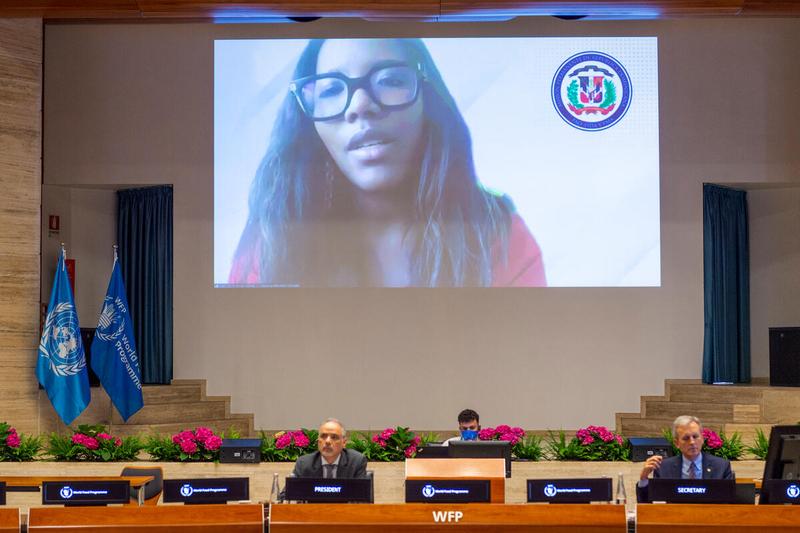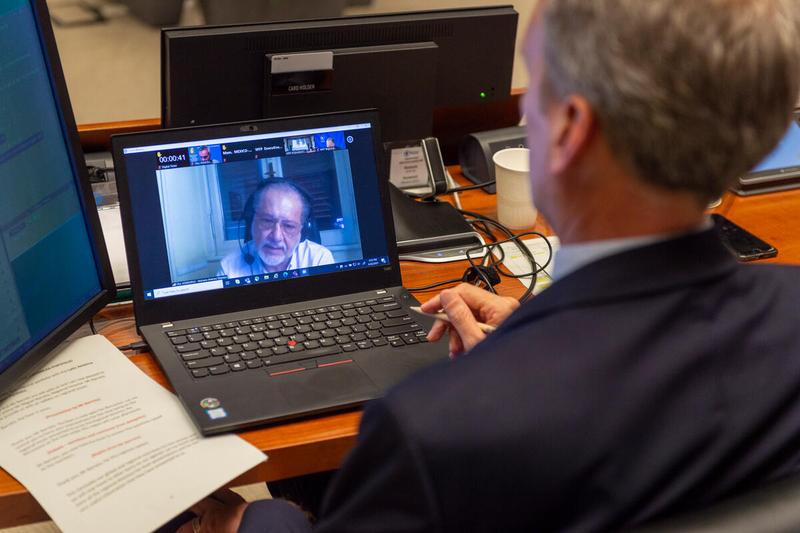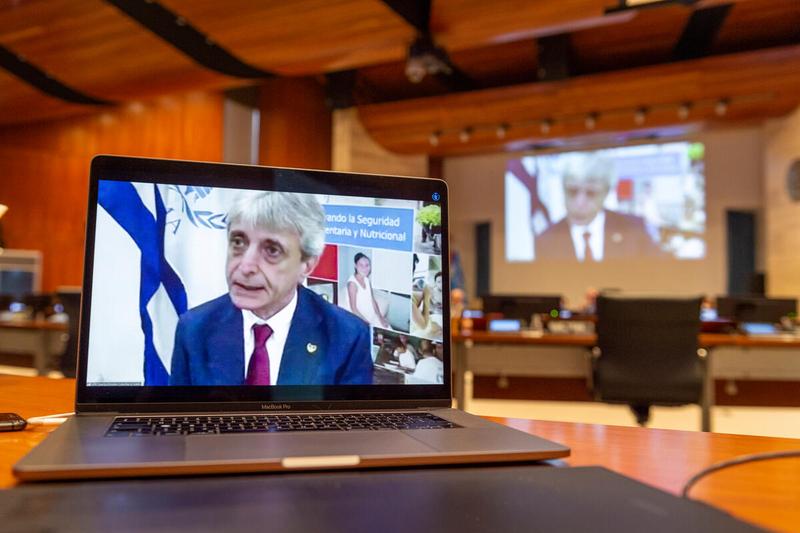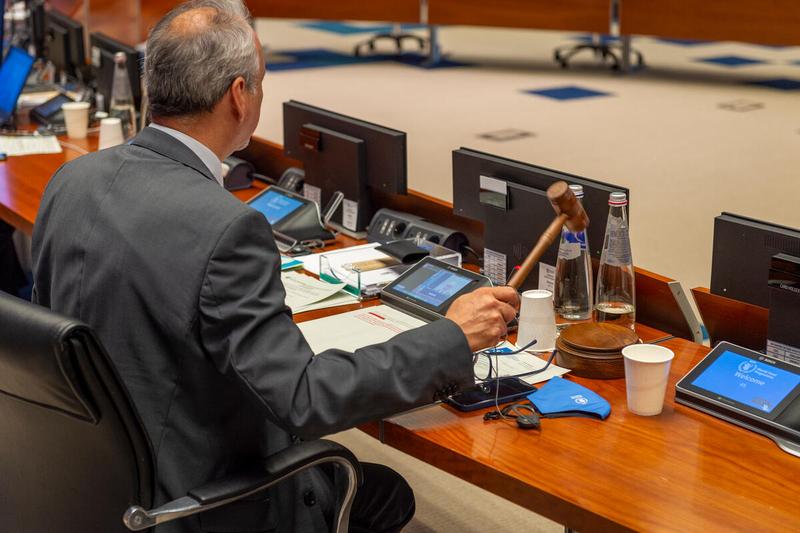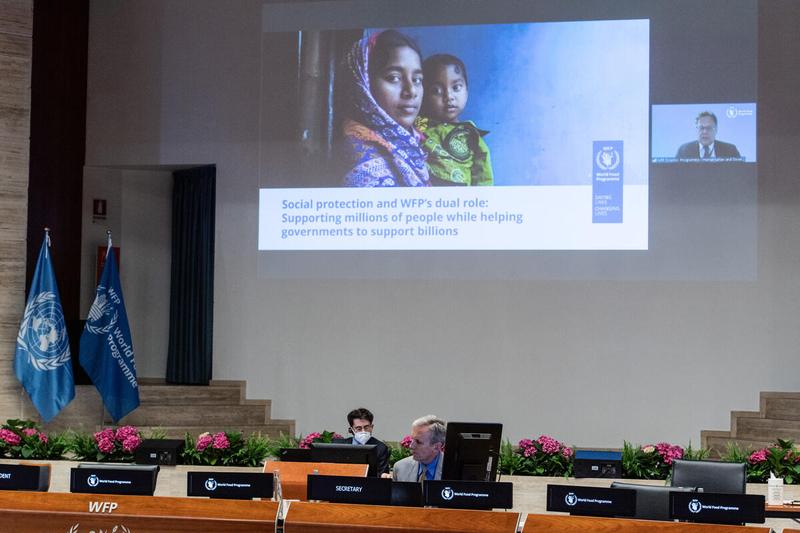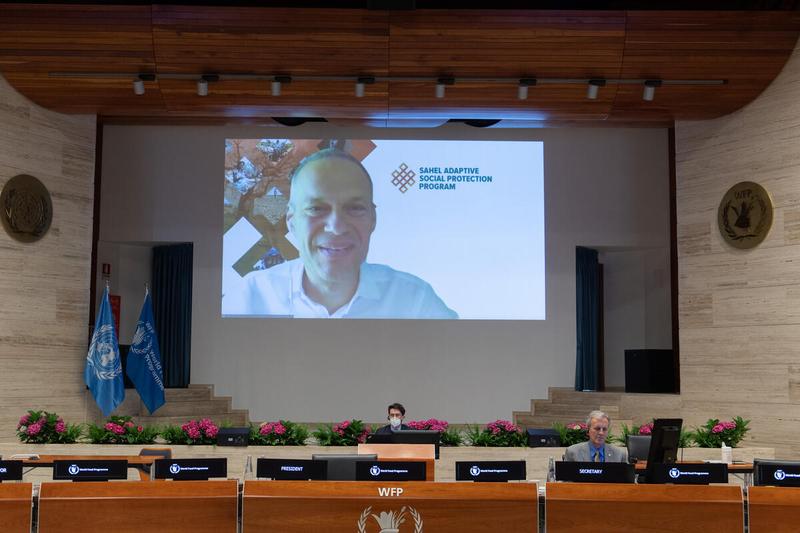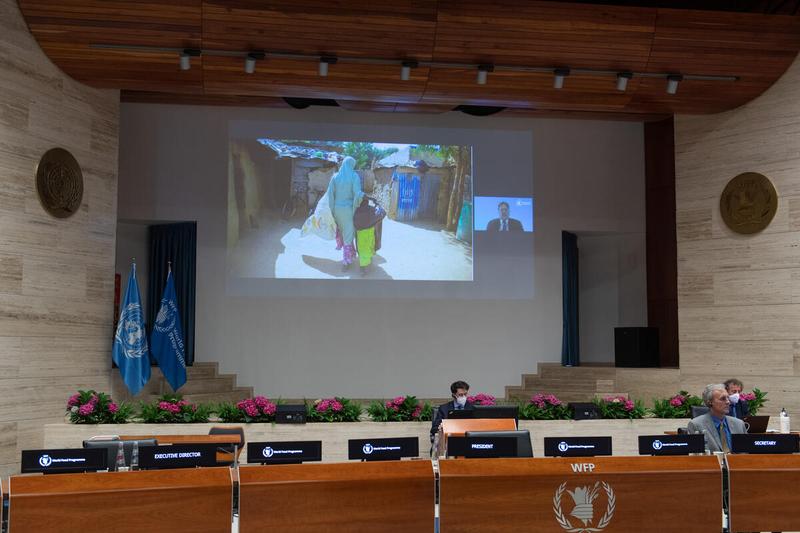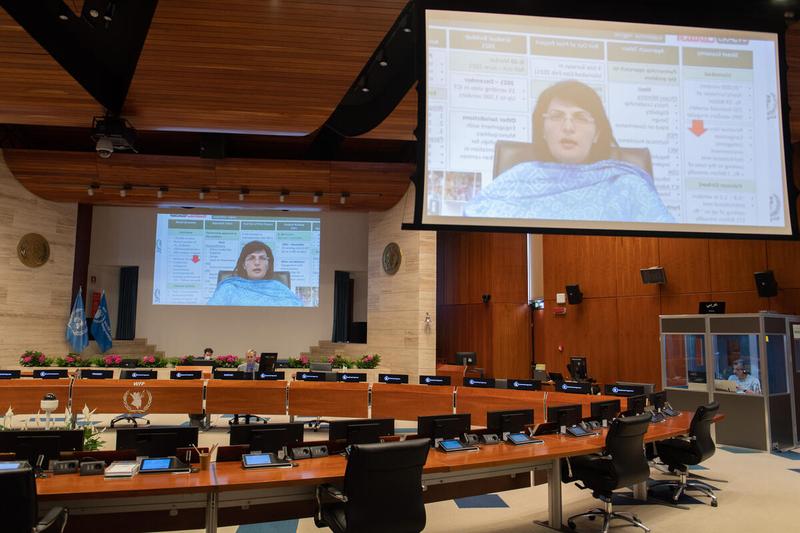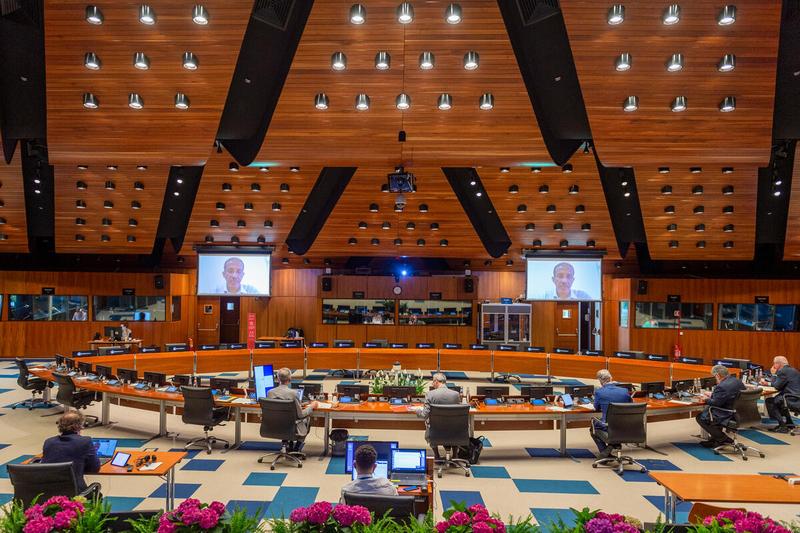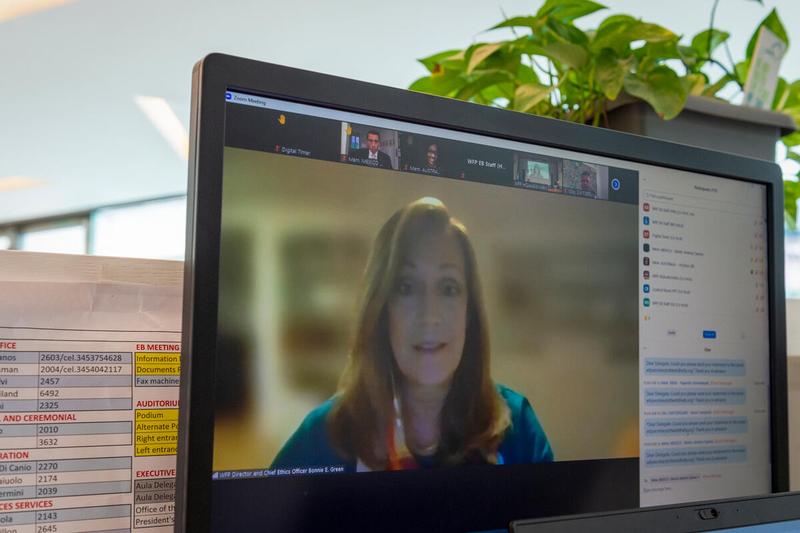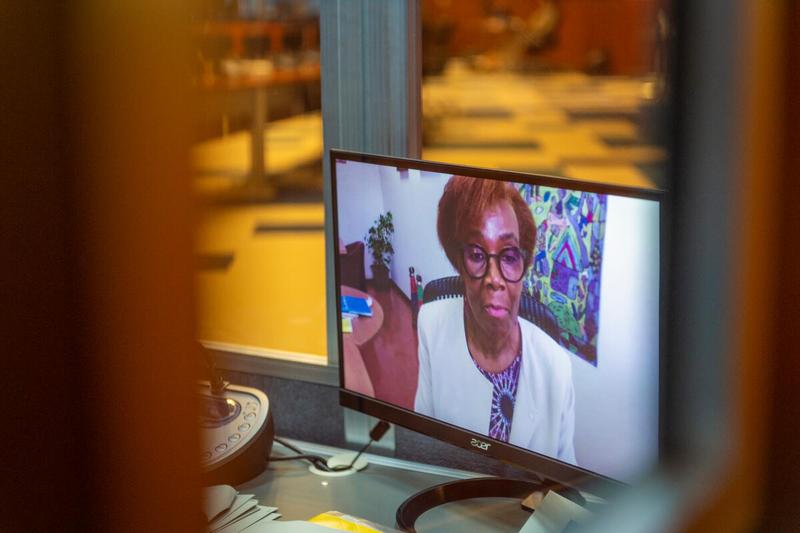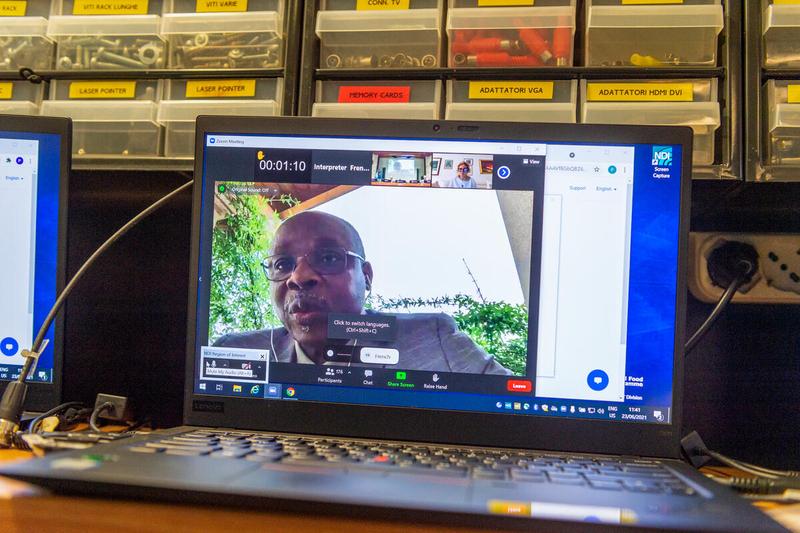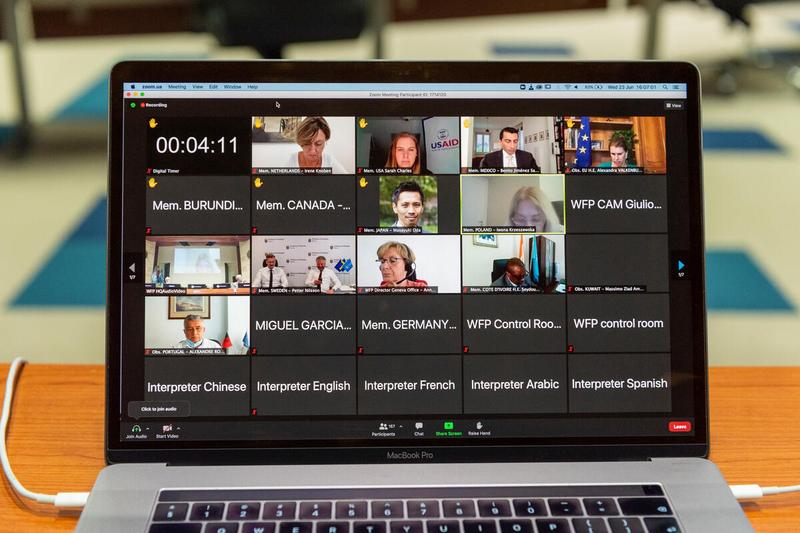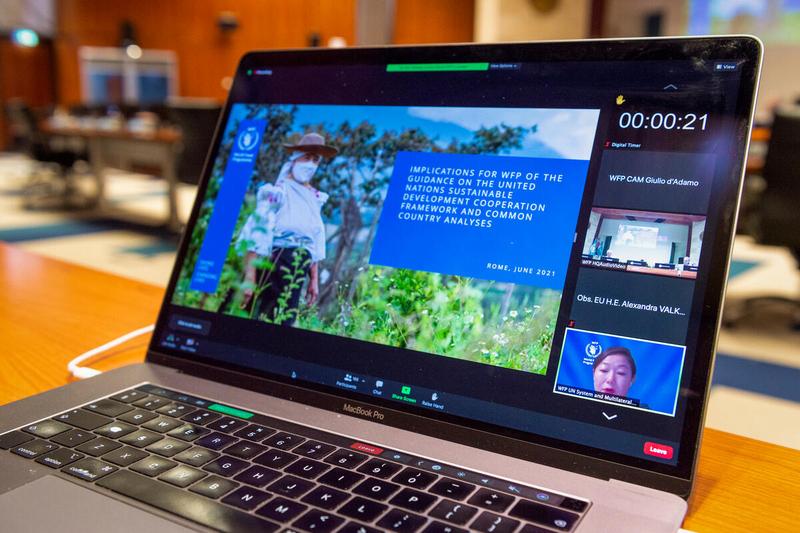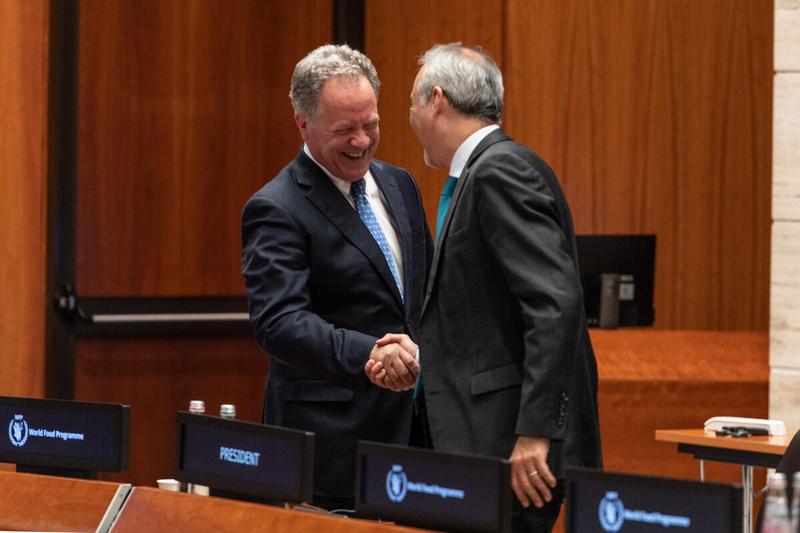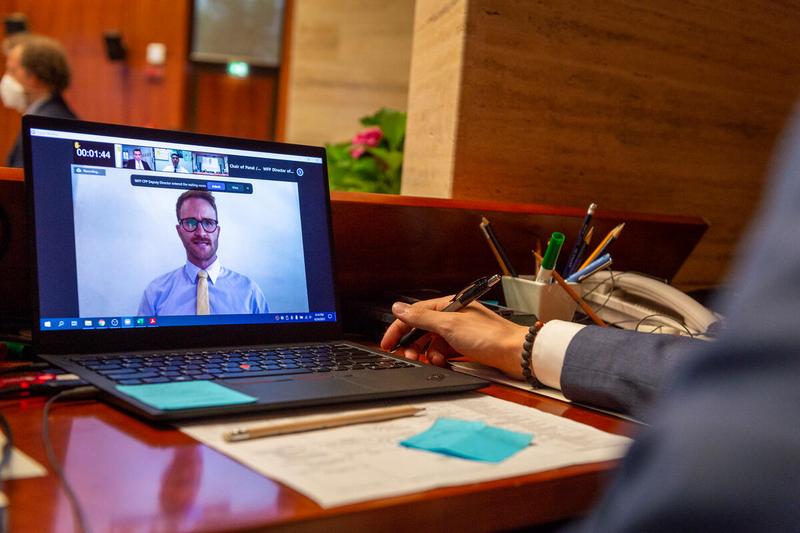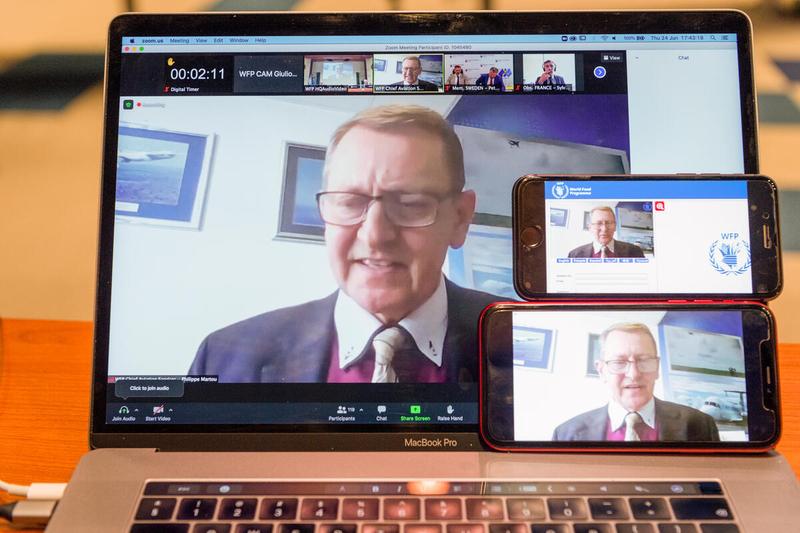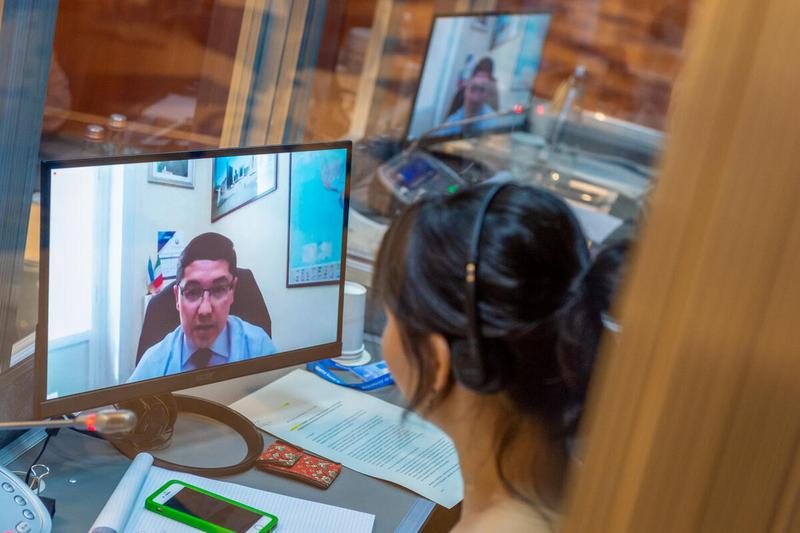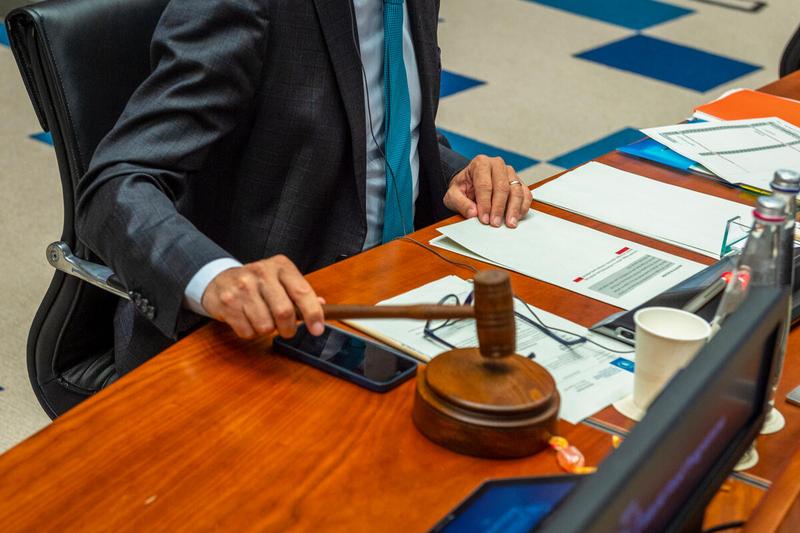A round-up of what you may have missed during the Annual Session of the WFP Executive Board from 21 to 25 June 2021.
From 21 to 25 June 2021 the World Food Programme held a fruitful 2021 Annual Session of the Executive Board. The event, conducted virtually with a minimal presence in HQ, offered an excellent occasion to discuss the upcoming United Nations Food Systems Summit and Pre-Summit, and WFP’s leadership in the development of Action Track 5 which seeks to build resilience in the face of crises.
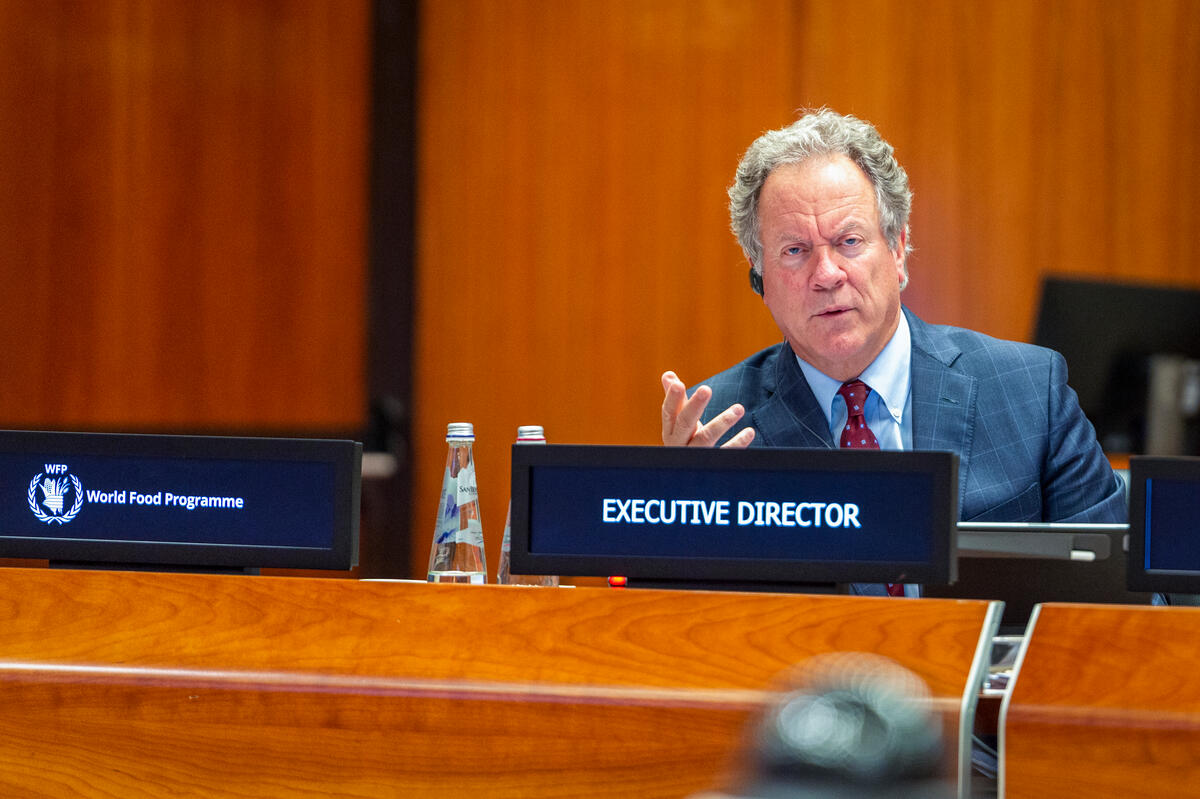
Opening remarks by the Executive Director
The Executive Director David Beasley opened this session by promoting the Global School Meals Coalition, the new WFP-led initiative that will be launched at the Food Systems Summit and that is supporting governments to restore and improve access to school feeding for the most vulnerable children. Beasley stressed the critical role that these programmes play in a country’s development as “the health of a child helps determine the future of a nation”.
Beasley also warned the Executive Board about the threat of famine in some countries. Conflict and climate shocks and the economic downturn caused by the COVID-19 ‘hunger pandemic’ are the main drivers of this danger that could soon become a reality for millions of people. The Executive Director reported that there are 138 million people globally in need of food assistance in 2021. Of these, 41 million are “knocking on famine’s door” (IPC Phase 4/Emergency) in various places in the world and 580,000 people are in famine-like conditions (IPC Phase 5/Catastrophe) in the Tigray region of Ethiopia, Madagascar, South Sudan and Yemen and in some areas of Nigeria and Burkina Faso. US$ 6 billion in funding would be needed to reach this latter group.
“When you look at the numbers, we must remember that these are real people and real children” said the ED while recounting his impressions in his recent visits to Mozambique, Madagascar, and Ethiopia: “I saw women and children holding on to dear life. Hundreds upon hundreds of these families who came to our food distribution and nutrition points, some of these women had walked seven hours, five hours, two hours”.
In Madagascar, communities are facing the spectre of total depletion of food sources due to climate change. “The wealthy nations of the world have a moral obligation to help every single person in this area. It is hypocritical to talk about combatting climate change while ignoring the impact on those people who have no hope at all and have been devastated and are now on the brink of starvation” Beasley warned.
Click here to read the full speech.
Special guest segment
The afternoon session was devoted to the special guest segment and was followed by an interactive dialogue with the Board members.
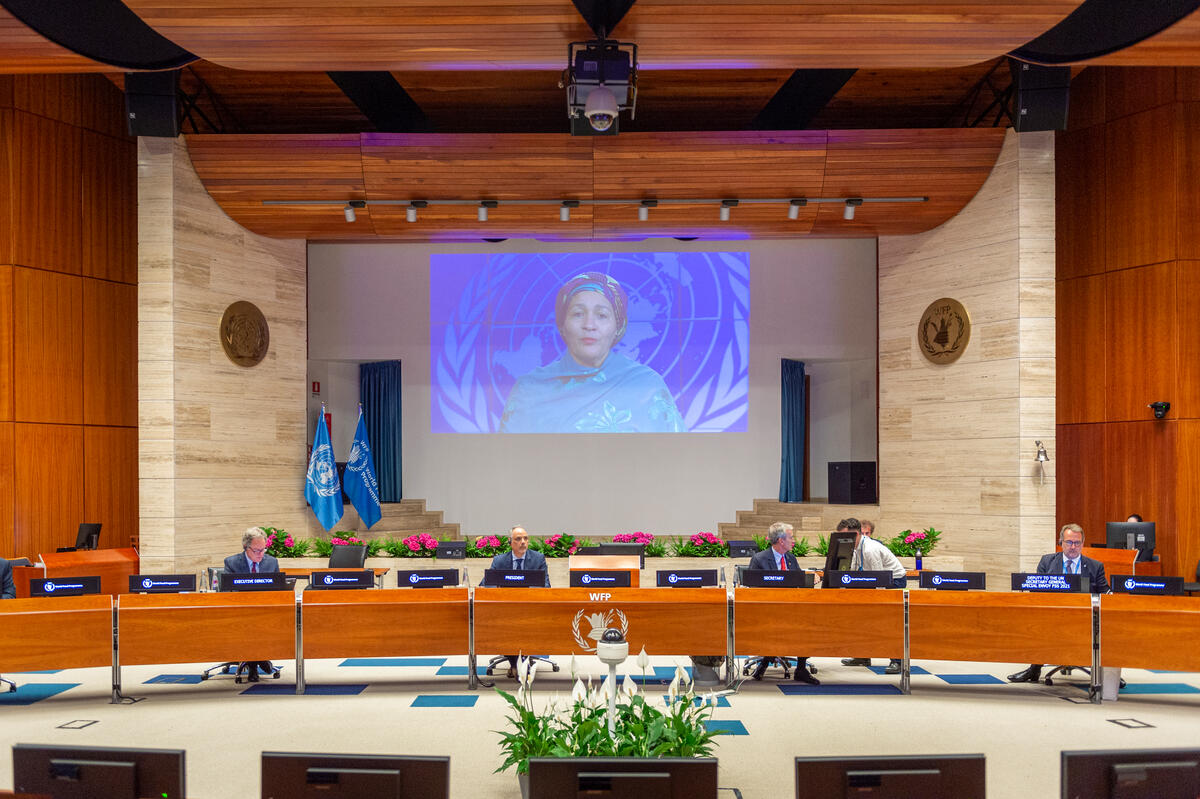
Ms Amina J. Mohammed, Deputy Secretary-General of the United Nations delivered a recorded speech video focusing on the global UN Food Systems Summit that will take place in September and which “aims to address the root causes of our shared challenges by transforming the way the world thinks about food”. The DSG encouraged the Members States to accelerate action, partnerships and investments to prevent and end hunger through the inclusive and innovative process of the Food Systems Summit that has “the potential to unlock ambition and action towards realization of the vision of the entire 2030 Agenda and accelerate towards a meaningful recovery”. Read her opening remarks here.
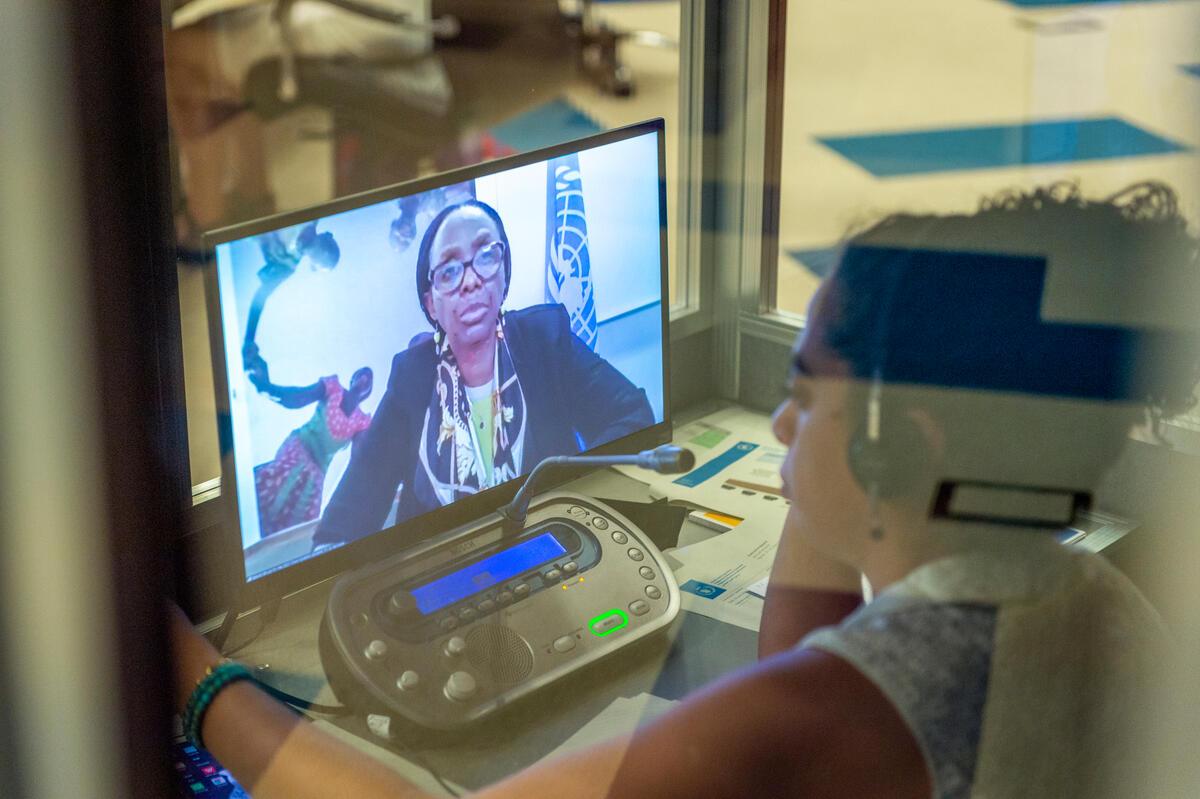
Special guest Dr Agnes Kalibata, United Nations Secretary-General’s Special Envoy for the 2021 Food Systems Summit, provided information about the latest developments on the preparation process for the Summit.
Dr Kalibata explained that the primary scope of the Summit is raising public discourse on food systems and fostering new actions and solutions that can deliver wide-reaching benefits.
Through the UNFSS dialogue the member states and a variety of stakeholders have established a global conversation aiming at exploring ways of collaboration. Individual citizens and anyone with an interest in food systems have been offered a powerful opportunity to have a seat at the table and bring their local and regional perspective on such topics as equity and inclusion in food systems, resilience, education, as well as health and wellbeing. The scientific groups involved have prioritised the discussion on the importance of innovation to reduce inefficiencies in food systems, focusing primarily on climate and biodiversity.
The UNSG Special Envoy also highlighted the importance of the Pre-Summit that is taking place on 26-28 July in Rome and the strategic role of the Rome Based Agencies (RBAs). “The Pre-Summit is going to be about setting the tone, giving communities an opportunity to bring the conversation home and really ensuring that this comes together nicely and gives people a sense of what the food system will help us do in the next ten years of the Decade of Action” said Dr Kalibata. The Summit in September “will be about completing whatever will have remained” and all the information gathered by discussion groups will constitute the basis of the Secretary-General’s statement accompanied by few areas of action.
“We are hoping that we can create a certain momentum in food systems that really can start helping the thinking around food from a systems perspective, rather than just a food perspective or hunger perspective, really the system thinking becoming part of how we go forward with regards to how deliver food systems.” Dr. Kalibata concluded.
Key Documents
A total of 47 documents were produced for this session, 32 of which were examined for approval or for consideration.
Among these Cuba country strategic plan (2021–2024), Annual performance report for 2020, WFP people policy, Update on the implementation plan of the WFP protection and accountability policy. Click here to review the relevant documentation, supplementary information, photos and videos. Consult here the decisions and recommendations.
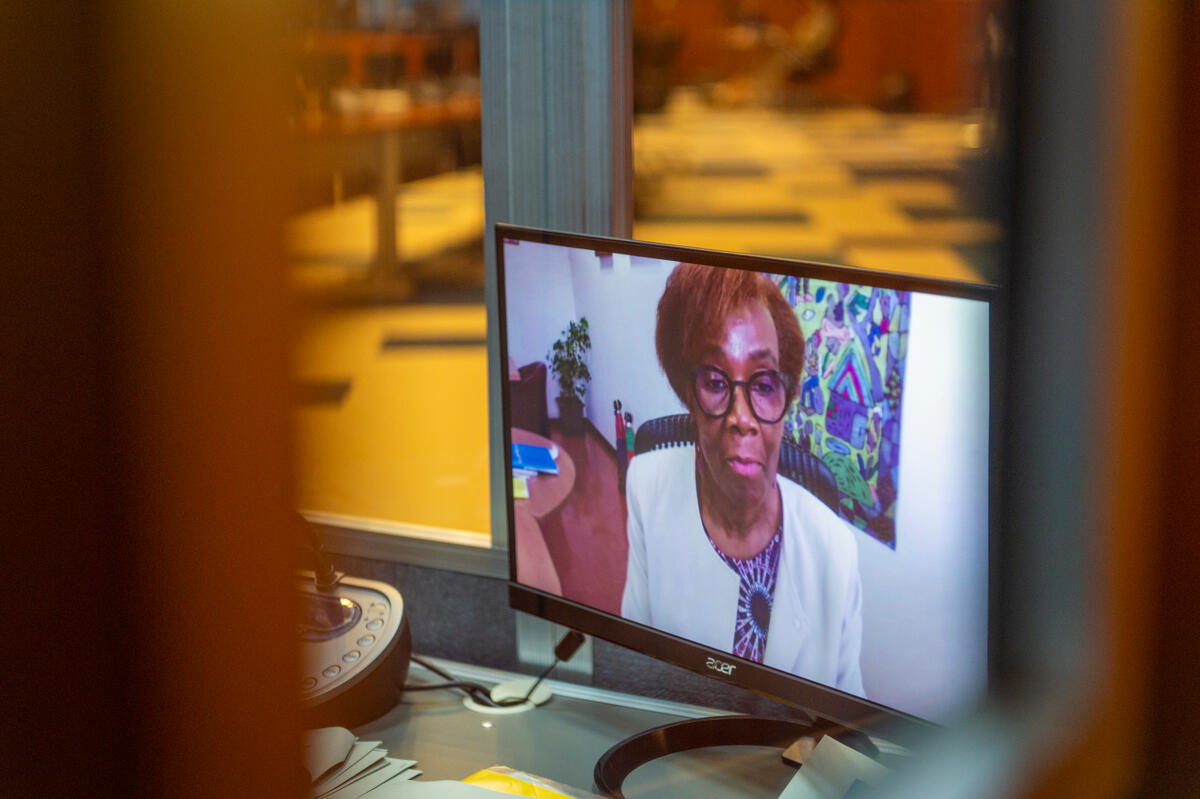
Side Events
Three virtual side events were held during this session.
On Tuesday, 22 June, the event “Impacting Nutrition through the Fresh Food Voucher Programme in Ethiopia” showcased the FFV initiative as a successful example of a multi-sectorial approach to improve nutrition and reduce stunting by improving dietary diversity and introducing healthier feeding practices in the most vulnerable communities. The programme also combines case-based assistance and the use of technology and artificial intelligence to conduct interviews with the beneficiaries and possibly course-correct the operations. Ms Valerie Guarnieri, WFP Assistant Executive Director and Dr. Steven Were Omamo, Ethiopia Country Director welcomed and introduced a roundtable discussion with a panel composed by Dr. Dereje Duguma, State Minister of the Ministry of Health of Ethiopia, Ms Fatouma Seid, FAO Representative in Ethiopia, Dr. Namukolo Covic, Senior Research Coordinator at the International Food Policy Research Institute (IFPRI) and Mr Hanspeter Schwär, Senior Policy Advisor of the German Federal Ministry for Economic Cooperation and Development (BMZ).
The various actors shared some lessons learned and informed of upcoming plans. In particular the programme will be presented at the Food Systems Summit enhancing opportunities to mobilize investments and action in support of transformative interventions.
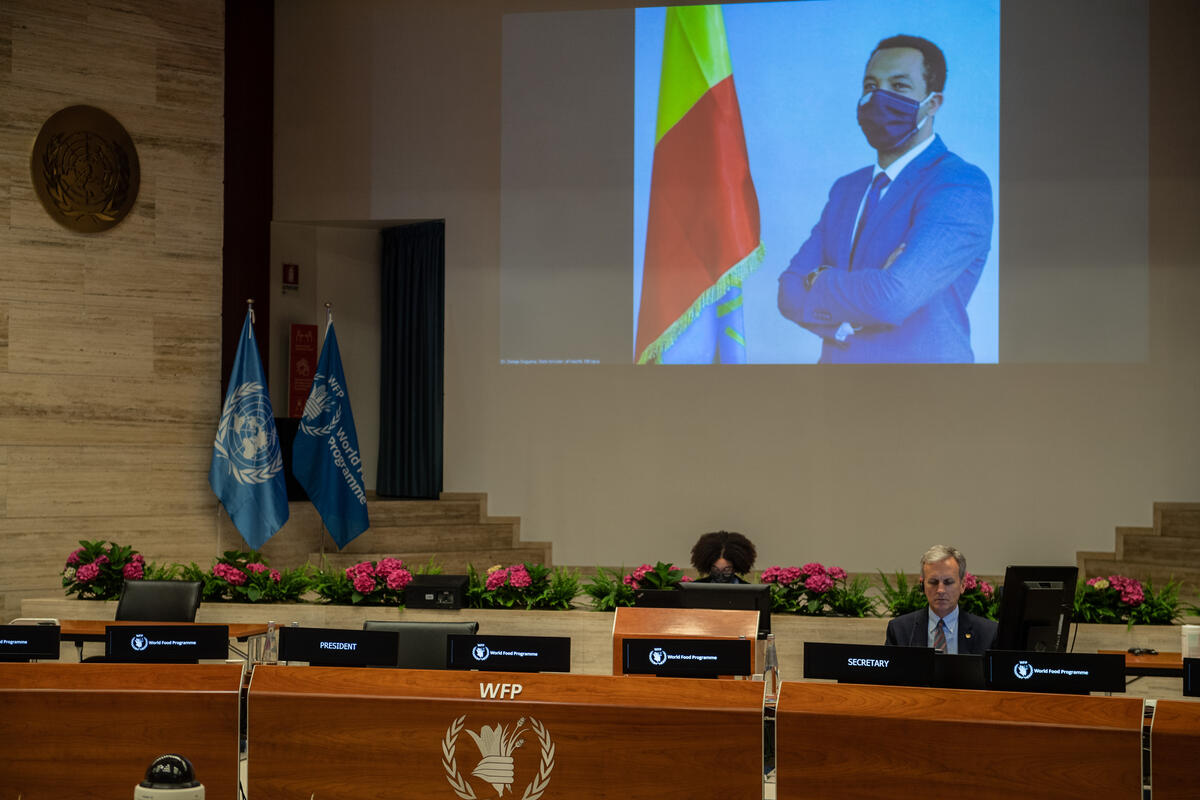
The WFP Programme – Humanitarian and Development Division in cooperation with the Government of Pakistan facilitated the side event “Social protection and WFP’s dual role: supporting millions of people while helping governments to support billions” on Wednesday, 23 June. It was an opportunity to look at WFP contribution to strengthen social protection around the world and discuss a forward-looking strategy.
The last event “Celebrating WFP’s improved workplace culture”, held on Thursday, 24 June, was organized by the Workplace Culture Department’s Comprehensive Action Plan Team in cooperation with the Management Services Division of the Resource Management Department. The event showcased the efforts and progress WFP has made in the field workplace culture, as demonstrated by 2021 Global Staff Survey improved results, with a focus on extra needs for ensuring a durable and sustainable change in this area. This was an occasion to inaugurate the Rome headquarters Values Corner space with a virtual tour of the space for all Executive Board members and WFP employees.

